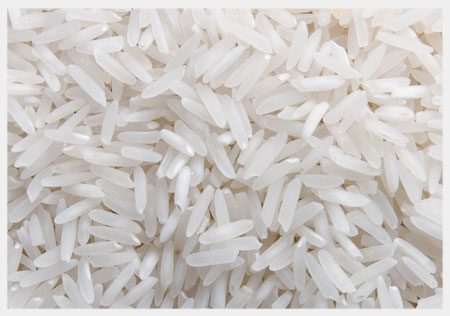
White fine long RICE
WHITE REFINDED LONG GRAIN RICE
Broken grains: 5 %, 10 % and 100 %
Damaged: 0.1 %
Max moisture: 13,50%
Paddy: 0,10% paddy
Other matter: 0,1 %
Two ways Rice shipment (Bulk and Containers):
– Loading: “Bulk” in San Pedro port, Argentina in ships (Bulk) – Volumes in Ship: from 2,000 MT to 12,500 MT in one load.
– Loading: in bags of 50 kg in 20´ feet “Containers” in Zarate port, Argentina (extra charges of container documentations, quality control and 50 kg bags cost) – Volumes in Container: minimum order: 25 MT container, maximum order: 500 MT (20 containers per week) – Weekly shipment.
Rice is unique among cereal grains in that the entire polished grain is eaten while other cereals are usually processed before they reach the consumer. Grain quality in rice is, therefore, a very sensitive issue. Interests and priorities of different sectors of rice industry are different. Farmers are interested in early maturity and high yield that would give them high returns in the form of good produce and provide enough time for sowing subsequent crops including wheat. Miller’s interest is high head rice recovery. Traders prefer attractive physical appearance (shape and size), whiteness and uniform grain size.
Definitions:
A) RICE: means milled rice which includes cargo rice, white rice, glutinous rice and boiled rice, whether it be whole grain, head rice, big broken, broken or small broken.
Cargo Rice: (BROWN RICE, HUSKED RICE) means rice obtained from paddy of which only the husk has been removed. This includes its whole grain, head rice, big broken, broken, and small broken.
Plain or White Rice: means rice obtained from paddy which has been husked and milled while by removing its bran layers. This includes its whole grain, head rice, big broken, broken, and small broken.
Parboiled Rice: may be husked or milled rice processed from paddy or husked rice that has been soaked in water and subjected to a heat treatment so that the starch is fully gelatinized, followed by a drying process.
B) Grain Classification: means the proportional mixture of rice of difference classes to form a grad. Rice Kernal is divided into four classes namely:
Extra Long Grain: shall be the head rice/whole grain having the average grain length of 6.90 mm or more.
Long Grain: shall be the head rice/whole grain having the average grain length of more than 6.0 mm but not more than 6.90 mm.
Medium Grain: shall be the head rice/whole grain having the average grain length of more than 5.0 mm but not more than 5.9 mm.
Short Grain: shall be the head rice/whole grain having the average grain length of 5.00 mm or less.
C) Yellow Kernel: means the kernel of which 25% or more of the surface area has turned yellow in color.
D) Chalky Kernel: means the kernel of which 50% or more of the surface area is white like the color of chalk.
E) Green Rice: means the kernel of green color in Cargo (Brown) rice which when broken is also green in color from inside or in the endosperm.
F) Broken Rice: Broken of size ¾ length of grain and above shall count as head rice.
Nutritional benefits of rice:
Rice is an excellent source of energy. It is rich in carbohydrates, which are broken down into glucose to provide energy for working muscles and fuel for the brain.
Rice is low in sugar and total fat and saturated fat. It is cholesterol-free, contains negligible amounts of salt and has no additives or preservatives. It is suitable to include in a diet for those watching their weight or on cholesterol-lowering diets.
Rice is gluten-free, making it ideal for people who are unable to tolerate the proteins found in wheat, barley, rye, oats and triticale.
The glycaemic index (GI) ranks foods based on their immediate effect on blood sugar levels. Eating low GI foods, such as certain varieties of rice, can lower insulin levels which makes fat easier to burn and less likely to be store